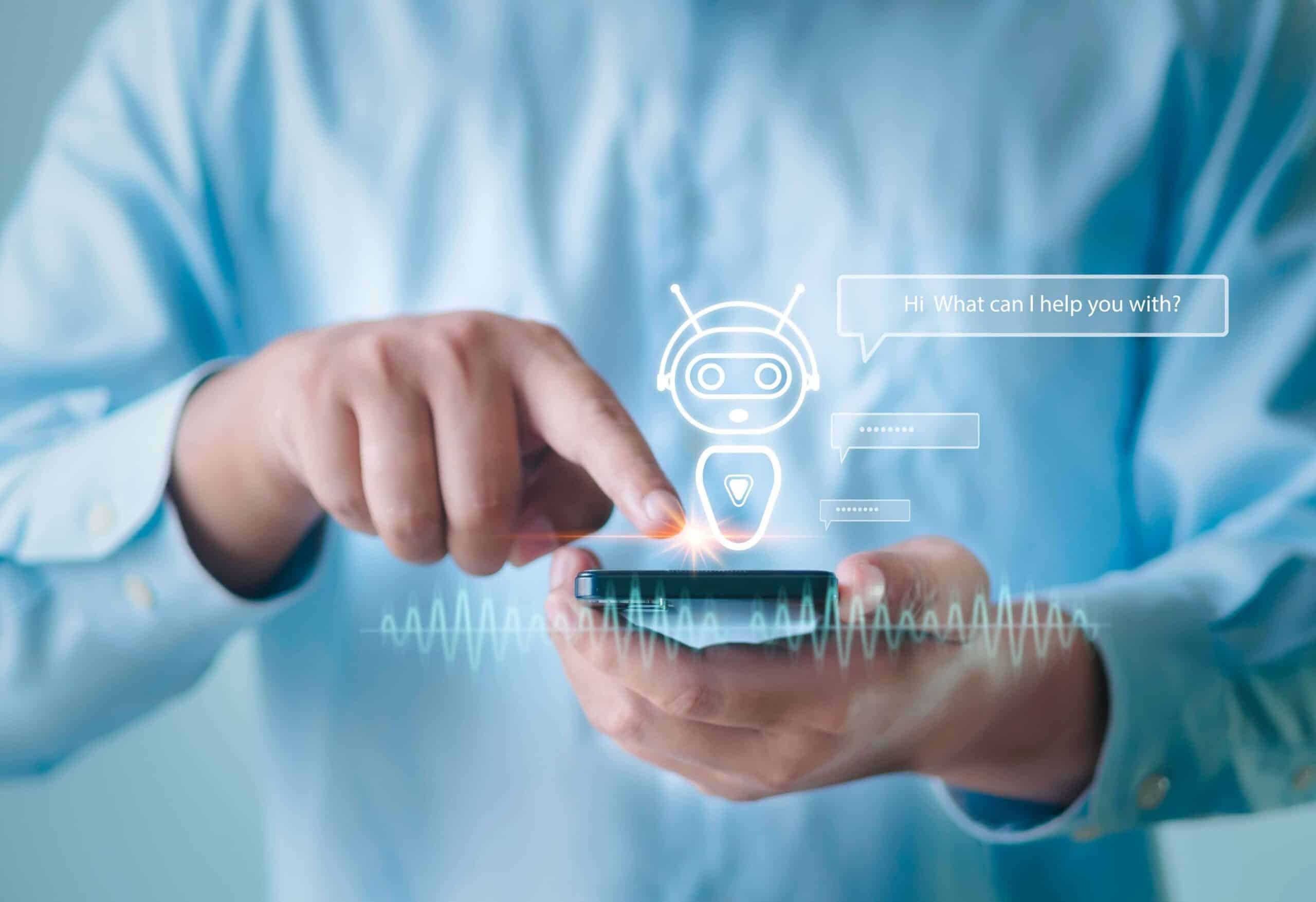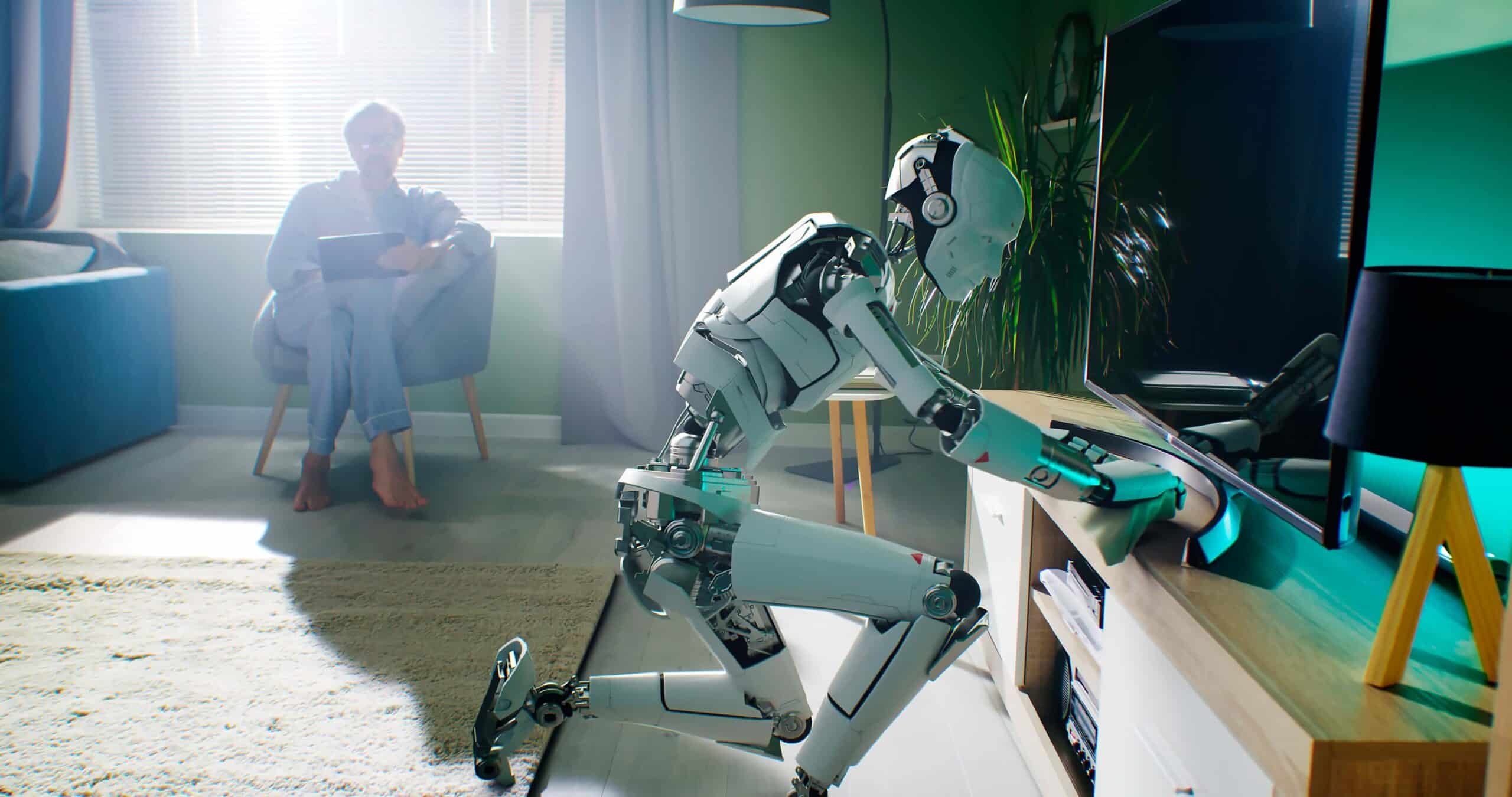- Breakthroughs in AI now make it possible to perform tasks previously reserved for humans
- Deep learning and conversational tech allow interaction that rivals human conversation
- Too much help: are we being spoiled by technology?
- Interacting with digital servants might make us worse people
It’s easy to see the ways in which technology improves our lives. From the ease of online shopping to the accuracy of medical diagnoses, recent advances allow feats of high-tech wizardry that were impossible just a few decades ago. Wearable communication was the stuff of Dick Tracy cartoons, and even the ‘communicators’ of Star Trek’s original series, set hundreds of years in the future, are clunkier and less sophisticated than the cheapest mobiles are now. We can buy simple robots to clean our floors, install smart tech to adjust the lighting and temperature of our homes, and soon, the task of driving will be relegated to our cars. Rapid progress has made life easier for most of us, but it comes at a cost: as we shape tech, tech shapes us, and not everyone is applauding how society is changing as a result.
Breakthroughs in AI now make it possible to perform tasks previously reserved for humans
Artificial intelligence and natural language processing are improving rapidly. Driven by revolutions in deep learning, AI is becoming cheaper and more useful. It’s not just that the best supercomputers are doing amazing things, it’s that the cost and capacity of low-end AI now allows rough-and-ready smarts to run quietly in the background of everything. Three advances are spurring this rapid change. First, deep learning has improved tremendously over the last few years. A team of researchers led by Geoffrey Hinton at the University of Toronto realised that by layering processing – by making the learning ‘deep’ – machine minds could perform tasks previously reserved for humans. Second, the sheer amount of data available for processors to work on has grown tremendously, providing a torrent of inputs to teach machine minds to do things we care about, things like facial recognition or natural language processing. And finally, Andrew Ng, formerly a researcher at Stanford University, realised that the graphic processors designed for gaming, capable of tremendous parallel processing, could be used to speed up machine learning. What used to take weeks now happens in a day or two.

Deep learning and conversational tech allow interaction that rivals human conversation
When you put these three advances together, some pretty incredible things can happen. Deep learning is an attempt to simulate how the human brain works. Imagine a complex ‘net’ of algorithms, each receiving inputs, analysing, and producing outputs. An interconnected, web-like structure of neurons allows the human mind to process information. Deep learning mimics this network, subdividing tasks while allowing structured communication. In this way, one level of processors can learn a task and work on a problem while passing its discovery up to the next where the information is further refined. These layered strata of silicon ‘neurons’ create a complex system of additive processing, much like your own brain. Lower levels in deep learning, for instance, might look for ‘edges’ that define facial features; the next level might process the edges into eyes, noses, and mouths. Still higher levels of neural networks might combine these features into the map of a face while the ultimate level of processing compares this map to a database of faces and identifies the person a camera sees. And just as it happens in your head, this process only takes fractions of a second.
Deep learning is incredibly useful across tasks, and one of the things it makes possible is natural language processing. A decade ago, the best we could do for voice interaction were the stilted, profoundly artificial voice systems that demanded precise words to prompt action. Think of the automated phone systems at your bank. “Press 1 for checking, 2 for savings, or say ‘I need help’ for an operator.” Those days are at an end. You’ve probably used Apple’s Siri or Amazon’s Echo. Both use natural language processing, meaning that they use deep learning to understand what you’re saying without demanding (or at least only make minimal demands for) precise keywords. And as more people use them, they learn to recognise different pronunciations and syntax, allowing them to respond to a greater variety of commands with real understanding.
They’re giving us a glimpse of a future in which conversational language is all that’s needed to control tech. And it’s easy to see just how useful this can be, just how ubiquitous this technology will become. Remember, natural language processing is still in its infancy – or as one expert described it – still in the green screen days of DOS prompts. In the next few years, it will allow an ease of interaction that rivals human conversation. We already use machines to clean our homes, keep track of our schedules, entertain us, and help us parent. When they become even more useful, even more omnipresent in our lives, will we come to depend on them to the point of laziness? Is technology spoiling us by doing too much?
Too much help – are we being spoiled by machines?
Critics worry that as tech comes to occupy an ever larger space in our lives, our capacity and willingness to work is being diminished. For instance, many – if not most – of the things we used to do are now done by machines, both high and low tech. One such critic, Mukta Agrawal, worries about the laziness our reliance on technology encourages. If your dishwasher is broken, she asks, will you bother to wash your pots and pans by hand, or wait till it’s fixed? Similarly, if you need to drive thirty minutes to visit a friend, isn’t it just easier to call them for a quick chat? And if you lost your mobile, would you even know which number to call? She worries that we’re turning ourselves into coddled, spoiled brats who need technology to do everything.
She’s far from alone in her opinions, and a number of trend watchers and futurists are exploring the negative consequences of our reliance on tech. Nowhere is this more discussed than in social interaction and child rearing. As Anugrah Kumar writes for The Christian Post, 65 percent of parents contacted in a recent survey reported that technology was making the task of raising children more difficult. As Andy Crouch, the author of The Tech-Wise Family: Everyday Steps for Putting Technology in Its Proper Place, warns, “…the pace of technological change has surpassed anyone’s capacity to develop enough wisdom to handle it. We are stuffing our lives with technology’s new promises, with no clear sense of whether technology will help us keep the promises we’ve already made.” It’s pretty clear what he means: we’ve handed a bored child a tech toy to keep her occupied or found ourselves more concerned with Twitter or Facebook than the people right in front of us. An alarming number of people start, end, and fill their day with the tiny screens of their mobiles. Do we spend more time with them than the people we love?
Interacting with digital servants might make us worse people
Experts warn that as a society, we’re addicted to technology. And as helpful as it can be when we need it, its ever-growing place in our lives leaves less room for other things, other people, and other pursuits. The most tech-savvy are the most concerned. When people – especially children – interact more with machines than people, how does that shape their sense of the world and their interaction with it? A great example of one effect is Amazon’s Echo. Triggered by starting a sentence with Echo’s name Alexa, the black cylinder can order a pizza or an Uber driver, keep track of your appointments, play music, and even tell jokes. It’s a great help around the house, and children can quickly learn to use Echo to entertain themselves or help with their homework. But its language processing, though quite advanced, is still not truly ‘natural.’ As a result, clarity – even to the point of rudeness – is more likely to result in Alexa responding appropriately to your commands. Parents have noticed that their young children take a harsh, even aggressive, tone with the digital servant, dropping the niceties of ordinary language when they issue their orders. A growing number worry that tech like Alexa is teaching their children bad habits, or as Hunter Walk, a tech investor in San Francisco, cautions, Echo is “turning our daughter into a raging asshole.” The fear, of course, is that repeated interaction with machines, devoid of the politeness and courtesy of human interaction, is poorly socialising a new generation of children.
If Agrawal’s concern that we’re becoming lazy is worrying, Walk’s concern about the capacity to warp our sense of self – and our sense of self-importance – is downright scary. As technology improves, it will inevitably be shaped to please us, and nothing pleases us more than the illusion that we’re the centre of the universe. As anyone who’s fought with social media for the attention of a friend can tell you, the narcissistic lure of tech is hard to resist. As natural language processing becomes the norm, and as AI advances, will we slowly lose our ability to take care of ourselves or to interact with living, breathing human beings?




